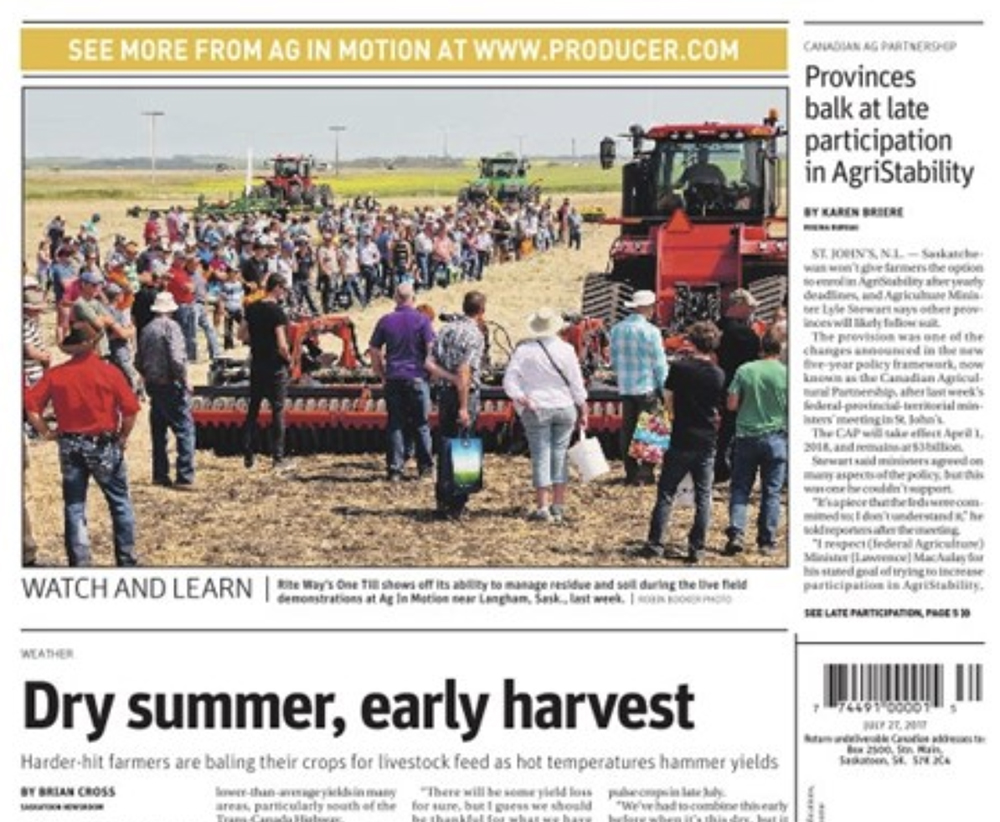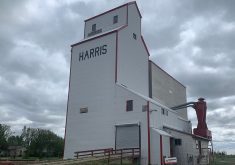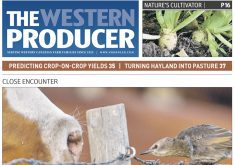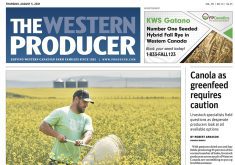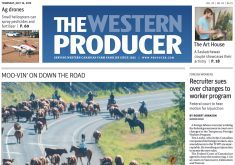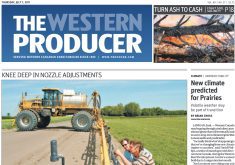For the next year, this column will mark The Western Producer’s 100th anniversary by taking a deep dive every week into a past issue of the paper.
The main front page headline in the July 27, 2017, issue said it all: “Dry summer, early harvest.”
High temperatures, extremely dry field conditions and lack of rainfall had caused crops to mature quickly and were expected to result in lower-than-average yields, particularly south of the Trans-Canada Highway.
Read Also

High prices see cow-calf producers rushing to incorporate
Farm accountants are reporting a steady stream of cow-calf producers rushing to get their operations incorporated ahead of selling their calves this fall.
“It’s definitely dry and definitely early,” said Mike Carefoot, a grower from Swift Current, Sask.
“There will be some yield loss for sure, but I guess we should be thankful for what we have out there, considering the very low rainfall that we’ve had this year.”
Crop prospects weren’t the only thing farmers were worrying about in the summer of 2017.
In Manitoba, the federal government’s plan to bring in national carbon pricing was causing problems for Keystone Agricultural Producers, that province’s general farm organization.
Some farmers wanted the group to take a hard-line stance against the tax similar to what the Agricultural Producers Association of Saskatchewan had done.
Instead, KAP was calling for farmers to be exempt from the carbon tax, which to many sounded too much like acceptance.
“Divisive,” KAP president Dan Mazier said.
“It seems lately … to be for or against. There’s no room for discussion.”
I get the feeling that hasn’t changed much in the last seven years.
4-H members attending a national summit in Ottawa were warned that animal rights activists were beginning to target the agricultural youth club.
Delegates were told about incidents in which activists untied animals in barns and disrupted steer auctions.
“They are very organized, strategic and now are starting to come to 4-H,” said Leah Jones, chief executive officer of the 4-H Foundation of Alberta.
Incidents of this nature haven’t made it on the Western Producer’s radar since this story was written, and let’s hope it stays that way.
In other news, Italy’s war on Canadian durum was heating up, but Bruce Burnett, a market analyst with Glacier FarmMedia, wasn’t worried.
“We’ve seen this movie before,” he said.

